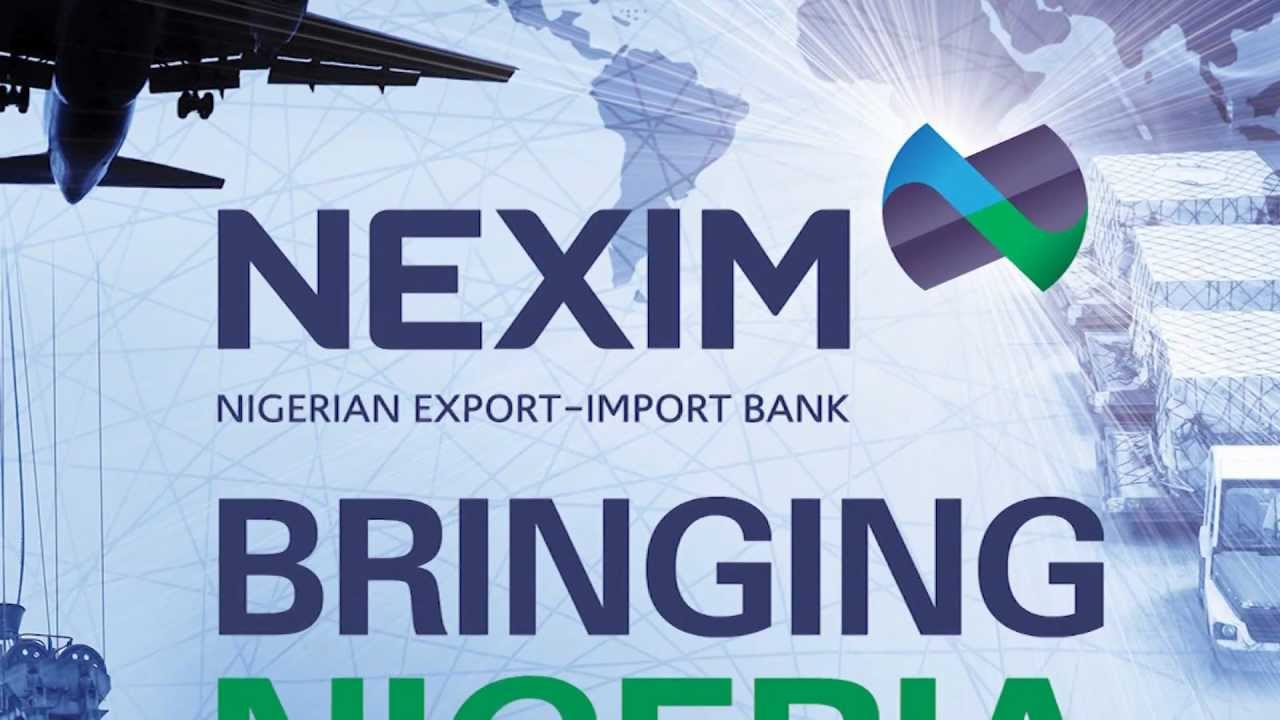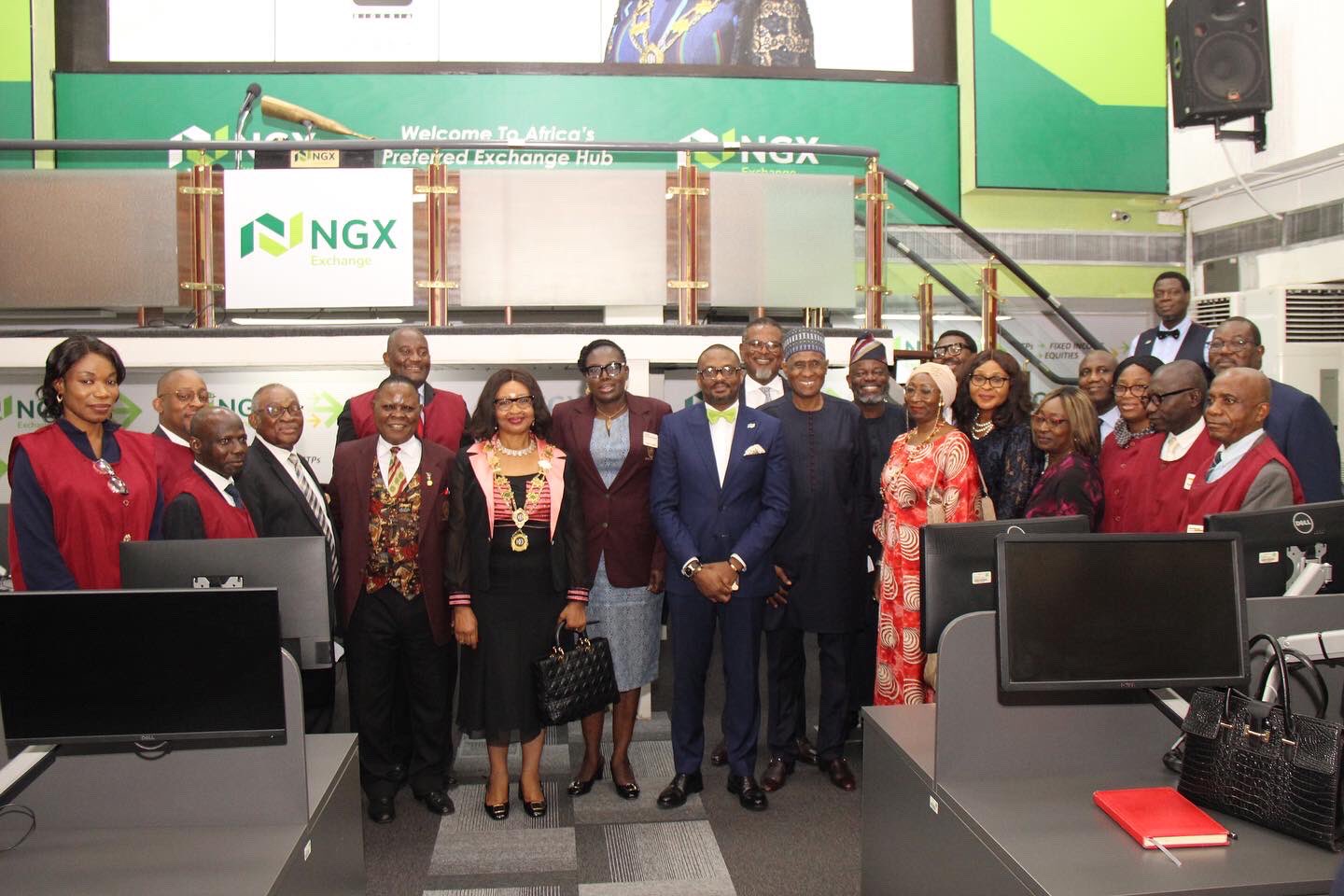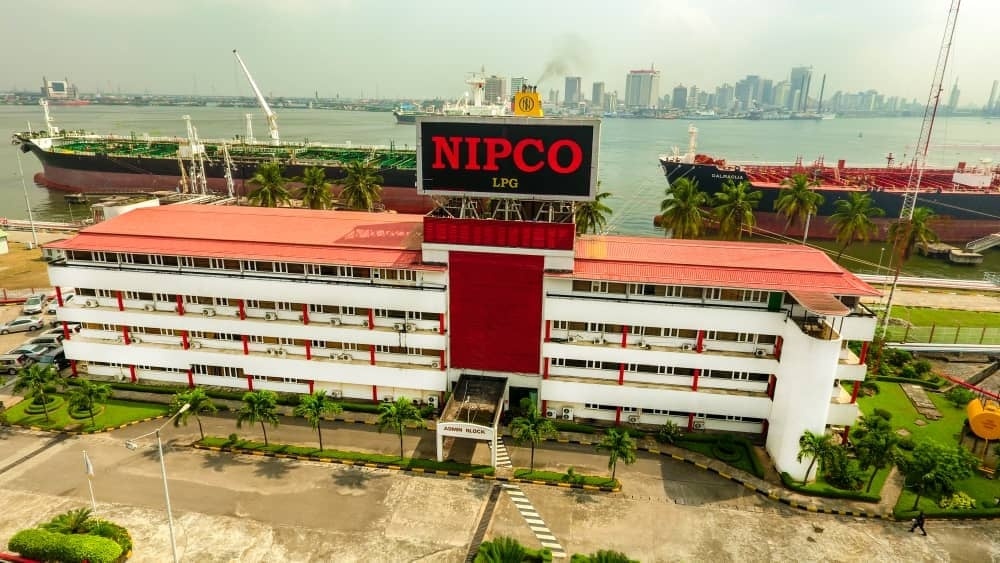Economy
NEXIM Bank, Indonesia Eximbank Fortify Bilateral Ties

By Modupe Gbadeyanka
In a bid to enhance cooperation and forge stronger relationships in promoting regional and global trade and investment between Indonesia and Nigeria, a Memorandum of Understanding (MoU) has been signed between the Indonesia Eximbank and the Nigerian Export-Import Bank (NEXIM Bank).
The MoU, according to a statement issued by the Head of Corporate Communication Department at NEXIM, Chinedu Moghalu, is strictly limited to the expressed desires of the parties to enhance cooperation in respect of the matters set out in the document. It is not intended to impose or create any legally binding rights or obligations on the parties.
It is also to foster trade, technical assistance, experience and information sharing, including other investment relations in a way that would promote financing, guarantees, insurance and counter trade instruments to increase transactions between Indonesia and Nigeria.
Managing Director of NEXIM, Mr Abba Bello, expressed his delight that both banks were able to quickly come to terms on the Articles of the MoU considering the brevity of time spent in the negotiations, showing commitment on both sides to work towards a more mutually beneficial relationship.
He further indicated that by virtue of both banks’ membership of the Global Network of Eximbanks and Development Finance Institutions (DFIs) G-NEXID, he hopes that the intentions expressed in the MoU would be much easier to pursue.
NEXIM Bank has been the honorary president of G-NEXID since May 2015.
Mr Abba informed the Indonesia Eximbank team that NEXIM Bank was established by Act 38 of 1991 as an Export Credit Agency with the broad mandate of promoting the diversification of the Nigerian economy and deepening the external sector, particularly the non-oil export sector.
The bank, he said, pursues this through the provision of credit facilities in both local and foreign currencies; risk-bearing facilities through export credit guarantee & export credit insurance as well as business development and financial advisory services etc.
Presently, its current strategic initiatives are geared towards boosting job creation and foreign exchange earnings in the Manufacturing, Agro-processing, Solid Minerals and Services (MASS) sectors in alignment with the efforts of the federal government to diversify the economy, create jobs and increase both the value and sources of foreign exchange earnings in the country.
Mr Bello assured his Indonesian counterpart that NEXIM would do all within its mandate in regard to the intentions expressed in the document. Concluding, he expressed his hope that the MoU will strengthen Nigeria’s existing bilateral relations with Indonesia through increased technical assistance, promotion of non-oil export trade and other economic activities and thereby provide more support to the Government’s efforts to diversify the economy.
In his response, the Managing Director of Indonesia Eximbank, Mr Dwi Wahyudi, expressed his satisfaction that the two institutions have established a viable intention to forge strong collaborative relationship as signalled by the MoU.
Mr Wahyudi expressed hopes that the MoU signed with NEXIM Bank would spur meaningful bilateral cooperation between the two countries for the promotion of the intentions expressed in the Articles.
This becomes more germane given the readiness of the Government of Indonesia to enhance more mutually beneficial economic relations with Nigeria as indicated during the official visit of the Minister for Foreign Affairs of the Republic of Indonesia, Mrs Retno Marsudi, in June this year.
Mr Wahydi disclosed that the Indonesia Eximbank was incorporated by virtue of Law Number 2/2009, as an export credit institution that provides export financing in the form of security, insurance and consultation services.
Like NEXIM, the Indonesian Eximbank supports its Government’s economic development aspirations by providing financing for (a) businesses that are into production of goods and services for export; (b) viable projects that are not attractive to commercial banks but have the prospects to increase the national export base; and (c) providing assistance to overcome the obstacles facing banks or other financial institutions in providing financing for exporters through various export credit instruments.
Economy
Customs Street Chalks up 1.08% on Renewed Buying Pressure

By Dipo Olowookere
A 1.08 per cent growth was further printed by the Nigerian Exchange (NGX) Limited on Friday on improved appetite for Nigerian stocks.
Data showed that the insurance sector lost 0.61 per cent yesterday due to profit-taking as the energy space gave up 0.08 per cent, while the commodity counter closed flat.
However, the industrial goods landscape appreciated by 2.06 per cent, the banking index improved by 1.31 per cent, and the consumer goods sector expanded by 0.83 per cent.
At the close of business on Customs Street, the All-Share Index (ASI) increased by 1,563.92 points to 147,040.07 points from 145,476.15 points and the market capitalisation went up by N996 billion to N93.722 trillion from N92.726 trillion.
UAC Nigeria led the advancers’ log yesterday after it grew by 10.00 per cent to N96.80, Transcorp Hotels jumped by 9.71 per cent to N172.80, Royal Exchange appreciated by 8.89 per cent to N1.96, Ikeja Hotel soared by 8.74 per cent to N31.10, and Veritas Kapital leapt by 8.07 per cent to N1.74.
On the flip side, Union Dicon declined by 10.00 per cent to N6.30, ABC Transport slipped by 9.88 per cent to N3.10, AXA Mansard depreciated by 7.19 per cent to N12.90, FTN Cocoa lost 4.62 per cent to trade at N4.75, and Guinea Insurance dropped 3.36 per cent to finish at N1.15.
A total of 38 stocks ended on the gainers’ table and 17 stocks finished on the losers’ table, representing a positive market breadth index and strong investor sentiment.
Traders transacted 361.6 million equities for N14.8 billion in 21,051 deals yesterday versus the 1.9 billion equities worth N19.2 billion traded in 23,369 deals a day earlier, showing a decline in the trading volume, value, and number of deals by 80.97 per cent, 22.92 per cent, and 14.20 per cent, respectively.
The busiest stock for the session was Zenith Bank with 59.5 million units worth N3.6 billion, Access Holdings traded 46.1 million units valued at N973.0 million, Fidelity Bank exchanged 29.4 million units for N560.4 million, FCMB transacted 27.9 million units worth N293.9 million, and Tantalizers sold 13.0 million units valued at N29.8 million.
Economy
Nipco, 11 Plc Crash OTC Securities Exchange by 4.76%

By Adedapo Adesanya
Energy stocks influenced the 4.76 per cent loss recorded by the NASD Over-the-Counter (OTC) Securities Exchange on Friday, December 5.
The culprits were the duo of 11 Plc and Nipco Plc,with the former shedding N32.17 to end at N291.83 per share compared with the previous day’s N324.00 per share, and the latter down by N21.00 to sell at N195.00 per unit versus the previous session’s N216.00 per unit.
Consequently, the NASD Unlisted Security Index (NSI) slumped by 170.16 points to 3,401.37 points from 3,571.53 points and the market capitalisation lost N101.81 billion to close at N2.035 billion from the N2.136 trillion quoted in the preceding session.
The OTC securities exchange suffered the decline yesterday despite the share prices of three companies closing green.
Central Securities Clearing System (CSCS) Plc was up by N1.80 to close at N39.80 per share compared with Thursday’s price of N38.00 per share, Air Liquide Plc appreciated by N1.09 to N11.99 per unit from N10.90 per unit, and FrieslandCampina Wamco Nigeria Plc grew by 78 Kobo to N56.57 per share from N55.79 per share.
During the session, the volume of transactions rose by 6,885.3 per cent to 18.2 million units from 4.3 million units, the value of transactions ballooned by 10,301.7 per cent to N389.7 million from N347.2 million, but the number of deals declined by 29.7 per cent to 26 deals from 37 deals.
Infrastructure Credit Guarantee Company (InfraCredit) Plc ended the day as the most traded stock by value on a year-to-date basis with 5.8 billion units worth N16.4 billion, followed by Okitipupa Plc with 170.4 million units valued at N8.0 billion, and Air Liquide Plc with 507.5 million units worth N4.2 billion.
InfraCredit Plc also finished the day as the most traded stock by volume on a year-to-date basis with 5.8 billion units transacted for N16.4 billion, followed by Industrial and General Insurance (IGI) Plc with 1.2 billion units sold for N420.2 million, and Impresit Bakolori Plc with 536.9 million units worth N524.9 million.
Economy
Naira Depreciates to N1,450/$1 at Official Forex Market

By Adedapo Adesanya
The Naira depreciated further against the US Dollar in the Nigerian Autonomous Foreign Exchange Market (NAFEX) on Friday, December 5, as FX demand pressure mounts.
The Nigerian currency lost N2.60 or 0.18 per cent against the greenback to close at N1,450.43/$1 compared with the previous day’s N1,447.83/$1.
Equally, the domestic currency declined against the Pound Sterling in the official forex market during the session by N4.48 to trade at N1,935.45/£1, in contrast to Thursday’s closing price of N1,930.97/£1 and shrank against the Euro by 43 Kobo to end at N1,689.17/€1 versus the preceding session’s rate of N1,688.74/€1.
Similarly, the local currency performed badly against the US Dollar at the GTBank FX counter by N2 to close at N1,455/$1 versus Thursday’s N1,453/$1 but traded flat at the parallel market at N14.65/$1.
As the country gets into the festive period, pressure mounted on the local currency reflecting higher foreign payments and lower FX inflows.
However, there are expectations that the Nigerian currency will be stable, supported by interventions by to the Central Bank of Nigeria (CBN) in the face of steady dollar Demand and inflows from Detty December festivities that will give the Naira a boost after it depreciated mildly last month.
Traders cited by Reuters expect that the Naira will trade within a band of N1,443-N1,450/$1 next week, buoyed by improved FX interventions by the apex bank.
As for the crypto market, it was down yesterday due to profit-taking associated with year-end trading. However, the December 1-Year Consumer Inflation Expectation by the University of Michigan fell to 4.1 per cent from 4.5 per cent previously and 4.5 per cent expected. The 5-Year Consumer Inflation Expectation fell to 3.2 per cent from 3.4 per cent previously and 3.4 per cent expected.
With the dearth of official economic data of late, these private surveys have taken on a new level of significance and the market banks of them to make decisions.
Cardano (ADA) depreciated by 5.7 per cent to $0.4142, Dogecoin (DOGE) slid by 5.1 per cent to $0.1394, Ethereum (ETH) dropped by 3.9 per cent to $3,039.75, Solana (SOL) declined by 3.8 per cent to $133.24, and Litecoin (LTC) fell by 3.7 per cent to $80.59.
Further, Bitcoin (BTC) went down by 2.6 per cent to sell at $89,683.72, Binance Coin (BNB) slumped by 2.2 per cent to $883.59, and Ripple (XRP) shrank by 2.1 per cent to $2.04, while the US Dollar Tether (USDT) and the US Dollar Coin (USDC) remained unchanged at $1.00 each.
-

 Feature/OPED6 years ago
Feature/OPED6 years agoDavos was Different this year
-
Travel/Tourism9 years ago
Lagos Seals Western Lodge Hotel In Ikorodu
-

 Showbiz3 years ago
Showbiz3 years agoEstranged Lover Releases Videos of Empress Njamah Bathing
-

 Banking7 years ago
Banking7 years agoSort Codes of GTBank Branches in Nigeria
-

 Economy3 years ago
Economy3 years agoSubsidy Removal: CNG at N130 Per Litre Cheaper Than Petrol—IPMAN
-

 Banking3 years ago
Banking3 years agoFirst Bank Announces Planned Downtime
-

 Banking3 years ago
Banking3 years agoSort Codes of UBA Branches in Nigeria
-

 Sports3 years ago
Sports3 years agoHighest Paid Nigerian Footballer – How Much Do Nigerian Footballers Earn












